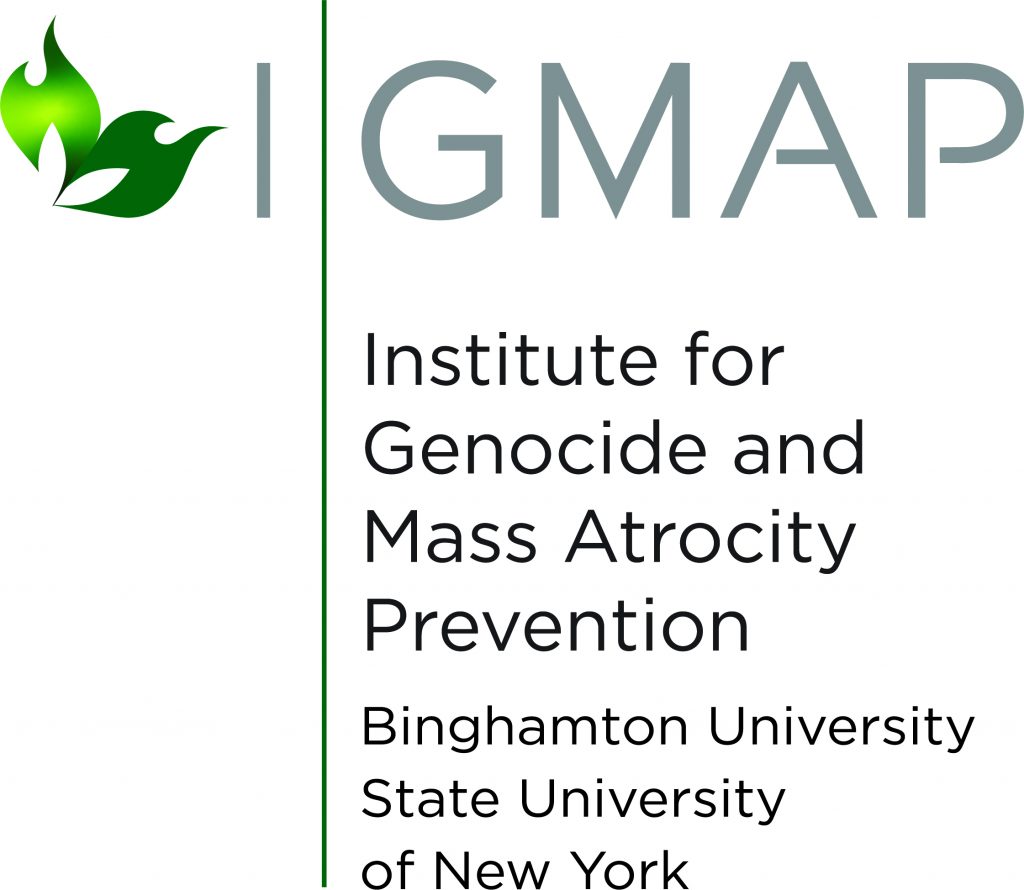

Friday, March 19, 2:00 – 3:00pm AZ time (5:00 – 6:00pm Eastern) & Saturday, March 20, 8:00am – 4:15pm AZ time (11:00am – 7:15pm Eastern) – Virtual via Zoom
The International Rule of Law and Security Program at ASU Law and the Institute for Genocide and Mass Atrocity Prevention at Binghamton University are excited to welcome current students and alumni to participate in an afternoon orientation and full-day virtual simulation of an international response to an emerging atrocity threat. The simulation is similar to those undertaken by U.S. government officials and will provide a practical learning experience and serve as a laboratory for decision-making, conflict analysis, and international cooperation. The exercise is ideal for students studying international law and policymaking, and those interested in foreign policy, international security, and negotiations.
Participants will be divided into groups, with each group acting as a different international actor in the simulated crisis. Each team will have experienced advisors to guide them.
Over the course of five rounds of the simulation exercise, you will:
- assess information in real time through realistic materials including diplomatic cables, maps, classified assessments, and tweets;
- articulate a series of policies aimed at resolving ongoing and arising challenges and competing issues, and;
- deal with the immediate and longer-term aftermath of the crisis.
Because this is a team-based exercise, and because each round builds directly on the preceding rounds, it is essential that you commit to the full exercise lasting one hour on Friday, March 19 and all day on Saturday, March 20, 2021. You must have a stable internet connection with a webcam to participate fully.
Register here by March 8: https://www.eventbrite.com/e/international-crisis-response-simulation-tickets-138338942501
Please direct questions to IRLS@asu.edu
Teams
Teams will represent governments with interests in the country where the atrocity is occurring, the United Nations, and international NGOs.
Team Leaders
Each simulation team will be led by a former U.S. ambassador. In addition to their ambassadorial experiences, the team leaders have held positions that include serving as the Deputy Assistant Secretary in the Bureau of Human Rights and Labor (at the U.S. Department of State), USAID Mission Director in Iraq, Senior Director for Africa on the National Security Council, Executive Secretary to the National Security Council, and much more.
Schedule
The simulation orientation will take place from 2:00 to 3:00pm Arizona time (5:00 to 6:00pm Eastern) on Friday, March 19, and from 8:00am to 4:15pm Arizona time (11:00am to 7:15pm Eastern) on Saturday, March 20. There will be an hourlong break for lunch on Saturday.
Simulation Access Information
The simulation will take place entirely virtually, with participants working with their teams via Zoom Breakout Groups and reconvening in plenary sessions. Access information, including the Zoom link and password, will be sent to all registered and confirmed participants in mid-March.

Simulation Creator and Administrator
Jim Finkel, Director, Atrocity Prevention Study Group, Stimson Center
In addition to IRLS faculty and staff, the main facilitator for this event is Jim Finkel. A former member of the senior civil service, Jim Finkel served as the U.S. Holocaust Memorial Museum Center for the Prevention of Genocide’s 2013-2014 Leonard and Sophie Davis Genocide Prevention Fellow after ending his 35-year federal service career in May 2012. During the final 20 years of his service, he held positions that provided him an insider’s view of the evolution of U.S. policy toward international accountability and the prevention of genocide and mass atrocities. Finkel was a participant in President Barack Obama’s Presidential Study Directive 10 (PSD 10) effort and was a frequent attendee during the first year of meetings of the President’s Atrocity Prevention Board. He is the co-founder of the Atrocity Prevention Study Group, a non-resident fellow at the Henry Stimson Center, a visiting scholar at George Mason’s Carter School for Conflict Analysis and Resolution and a courtesy professor of practice at the University of Oregon. Finkel holds a master’s degree in international affairs from the Johns Hopkins School of Advanced International Studies and a bachelor of arts from Rutgers College, Rutgers University. He is the author of a half-dozen structured, atrocity-based simulations, several of which have been run by the University of Oregon, Vanderbilt University, Claremont McKenna College, Binghamton University, and West Point. His Sri Lanka simulation was run by the IRLS program at Arizona State University Sandra Day O’Connor College of Law in October 2019.